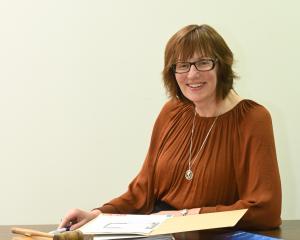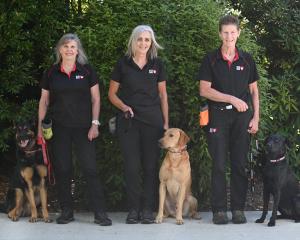
The meeting, called for by members amid allegations of bullying, conflicts of interest, dysfunction and a public protest in Dunedin last month, had been scheduled for this Saturday.
However, society member Michael Harrison, who had been attempting to broker the get-together, yesterday confirmed the committee had pulled out of the gathering.
A letter sent this week by society president Beverly Glenn to Otago members confirmed the decision, which was based on advice from Multiple Sclerosis Society of New Zealand and its lawyers, he said.
Instead, members would have to wait until the Otago society's next annual meeting to voice their concerns and push for a new committee.
The AGM had been scheduled for March, but had now been brought forward to January - the earliest time available to hold the meeting, Mr Harrison said.
The existing committee, which included Mrs Glenn and her husband, treasurer David Glenn, had also invited Mr Harrison on to the committee in the meantime.
Mr Harrison said he planned to accept the invitation and work through the ''transition period'' to a new committee, to ensure it was ''in the best position to move forward for a very positive 2018''.
The existing committee was also looking to appoint new staff, in permanent and fixed-term positions, even as two former staff continued to work through personal grievance claims.
Mr Harrison told the Otago Daily Times he had spoken to a ''handful'' of other members who were happy with progress towards a new committee, but accepted others would not be happy with the delay.
Mr Glenn, who has previously denied claims of bullying, would not comment on the latest developments when contacted yesterday.
He had previously indicated he and his wife would not seek re-election when their terms ended at next year's annual meeting.
Mr Harrison said that was still his understanding yesterday, although incumbent committee members were free to stand again.
Some, excluding Mr and Mrs Glenn, had already indicated they intended to do so, Mr Harrison said.
The new committee could have up to 12 members, and Mr Harrison was aware of more than 12 people preparing to stand as candidates for the first time next year.
''How that vote would go would be a democratic process,'' he said.












